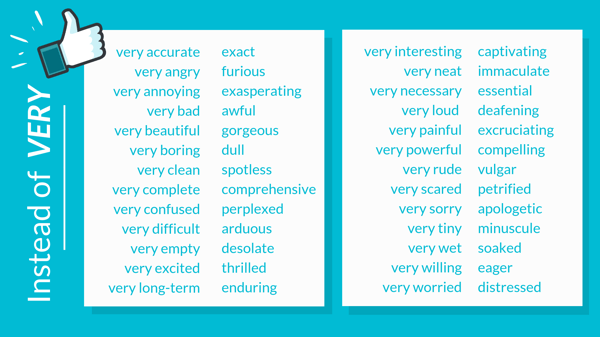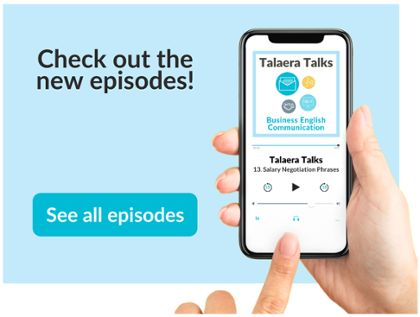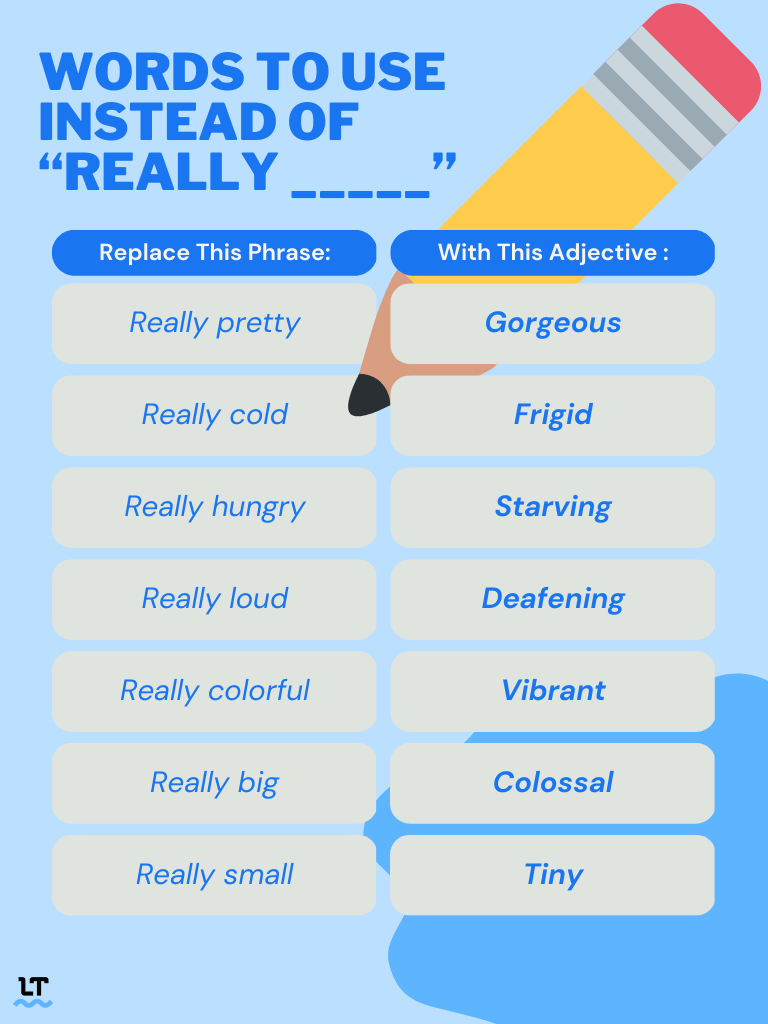Welcome back English learners! This blog is going to discuss the difference between real and really. The word real refers to something that is considered true.
Most of the time, this word is an adjective. Meaning, it describes a noun.
Skype English Lesson with a native AMERICAN or BRITISH teacher ››
Here are some helpful examples:
- The YouTube video was not fake, it was real. (It was a truthful, non-edited video.)
- The following story was based on real life events. (These events happened in someone’s life.)
- There is a real gorilla outside right now. (This is NOT someone in a gorilla suit.)
The word real could also be used as an adverb. An adverb describes a verb or an adjective. When real is used as an adverb, the definition means extremely.
Check your Grammar ››
For example:
- She did a real nice job fixing the car. (I am extremely pleased with the work on the car).
- The word really is an adverb and an interjection.
When you use the word really as an adverb (describing the verb or adjective) then it doesn’t matter if you use real or really. It comes down to personal choice.
Really has the definition of meaning actually, truly, without a doubt or even in reality.
It might be easier to know some synonyms of the word really to help remember when to use it. (Synonym are words that have the same definition.)
Skype English Lesson with a native AMERICAN or BRITISH teacher ››
The following are synonyms of really
Absolutely, actually, certainly, easily, genuinely, honestly, indeed, legitimately, literally, surely, truly, undoubtedly, unquestionably and well.
Here are some examples of the word really used in sentences:
- Bob is so much in love that he can’t see that she really doesn’t like him. (I used an adverb that means truly.)
- I really can’t tell the difference between Mom’s cake and my sister’s cake. They taste identical.
If you are able to replace the word really with most of the synonyms; then you are using the word correctly.
There are some sentences where both real and really can be used.
Check your Grammar ››
For example:
- The ice cream in Italy is really good.
- The word good is an adjective and I need a word that describes this adjective. I can only use an adverb. Really works here.
BUT, I could also say:
- The ice cream in Italy is real good. The word good is a friend of everyone and allows both real and really to describe it.
The word really can also be used as in interjection. An interjection is a part of speech that expresses emotion.
Really expresses surprise or doubt.
Skype English Lesson with a native AMERICAN or BRITISH teacher ››
For example:
You won’t believe this, but Mary just had her baby!
Really?
You must be careful with how you say really when using it as an interjection.
If you say really and you use an intonation that goes from low to high, native English speakers will understand that you believe them.
Intonation is the way you sing and change the pitch in your voice. Like when you sing words, the notes change.
When you start with lower notes (or a lower pitch) and end with a higher note (higher pitch) when saying the word “really” it means you believe the person or the thing that was said.
On the other hand, if you end with a lower pitch when saying really it means that you do NOT believe the person or what was said.
An easier way to remember this is the following:
Really = high notes = I believe you
Really = low notes = I do NOT believe you (you need to convince me!)
Great job! Keep practicing to master the difference between real and really.
It will take some time before you can remember these rules. So come back to this post to help refresh your memory!
Check your Grammar ››
Really is an adverb because it qualifies verbs, adjectives and other adverbs.
Infact, one of the key identification of adverbs is that a lot of them end in -ly.
Let us look at some of the usage examples of the adverb ‘really’.
i) Qualifying a verb:
a) He really stays up all night. (qualifies verb ‘stays’)
b) Did Sudhir really say that? (qualifies verb ‘say’)
c) I can never really forget that day. (Qualifies verb forget).
d) You don’t really learn from your mistakes. (qualifies the verb learn).
Now, let us look at examples where the adverb ‘really’ is qualifying adjectives:
Ex1: He is really fat (qualifies adjective ‘fat’).
Ex2: It was really scary in the jungle (qualifies adjective ‘scary’)
Ex3: This place is really beautiful (qualifies adjective beautiful).
Ex4: Bullet train journey is really amazing (adjective amazing)
And then, the third set of usage where ‘really’ is sued to modify other adverbs:
i) Sudhir runs really fast.
ii) Mahesh works really hard.
iii) I didn’t really work hard enough.
iv) Why don’t they never really tire of complaining?
- “What is the difference between really and very?”
- “Can I use really and very anytime I want?”
- “How can I remember when to use each?”
These are questions we frequently get from our learners and, the truth is, we get it, we understand that it can get a bit confusing. These two words have a lot in common: both are adverbs, have similar definitions, and we use them to emphasize, to intensify what we are saying.
So, if they have so much in common, can we always exchange them? Unfortunately, not really. In this article, you’ll learn the difference between really and very, get some tips on how to remember the rules, and some extra exercises that you can download to practice.
A. Really And Very As Adverbs
Really: (adv.) is used to describe adjectives, verbs or other adverbs.
- She thought the project was really interesting. > adjective ✔︎
- He was driving really slowly. > adverb ✔︎
- I really enjoy my job. > verb ✔︎
Very: (adv.) is used to describe adjectives and adverbs (but not verbs!)
- She thought the project was very interesting. > adjective ✔︎
- He was driving very slowly. > adverb ✔︎
- I very enjoy my job. > verb ✗
TIP 1: If you’re talking about an action, avoid very!
TIP 2: After “I”, “we”, “they” and any other subject, we cannot use very, we needreally. (I really like it; They really want to finish early; Tony really enjoys his job.)
B. Really As An Exclamation
You can also use really to express interest, surprise, or doubt:
- ‘I’ve worked so hard on this project.’ — ‘Really?’
- ‘I applied for a job at Google and they accepted me.’ — ‘Really?
It can also mean ‘actually’, ‘truly’ or ‘indeed.’
- Really, it’s too much work.
- It was an incredible performance, really.
C. Very As An Adjective
When very is combined with nouns, it means ‘actual,’ ‘precise’ or ‘exact.’
- Those were his very words.
- He might be flying at this very moment.
- From the very beginning of the book.
In A Nutshell
Basically, you have to remember four things:
- Really (adverb) can modify adjectives (really interesting), adverbs (really slowly), and verbs (I really love)
- Very (adverb) can modify adjectives (very interesting) and adverbs (very slowly), but not verbs (I very love)
- Really (exclamation) expresses surprise (Really?!)
- Very (adjective) is combined with other nouns (at the very end)
Practice The Difference Between Really and Very
Complete the following sentences with really, very or both. You can then check the answers📄.
- 1. I …… enjoy learning about different selling techniques.
- 2. How beneficial is it to have a …… strict manager?
- 3. She is …… good at coding.
- 4. He had to wait until the …… end to bring up the topic.
- 5. We …… want this company to thrive.
- 6. I …… enjoy networking events.
- 7. I don’t …… like meetings so much.
- 8. I find some tasks …… boring.
- 9. They sat at the …… back of the truck.
- 10. I am …… sorry. It won’t happen again.
- 11. I’m super involved in distance learning at the moment. ……?
- 12. She …… makes her work seem easy.
- 13. They made me feel at home from the …… beginning.
- 14. I …… love my job!
- 15. They …… put a lot of effort into their projects.
- 16. They might actually be arriving at this …… moment.
- 17. The production cost was …… high.
- 18. The salaries in the IT industry are currently …… high.
- 19. We still do not have enough women at the …… top.
- 20. Make sure employees understand their goals from the …… beginning.
And Now That You Know Them, Why Not Get Rid Of Them?
Wait, what?
Well, we thought that now that you know the difference between really and very, we’d advise you not to use them.
This is not fully true, though. Our recommendation is that you use them in moderation. English is such a rich language, and it has hundreds of words that you can use to replace these adverbs. Use thrilling instead of very exciting or gifted, instead of very talented.
Click here or on the image above to get a comprehensive list of words you can use instead of very.
Looking for more ways to improve your business English communication?
Take your professional English communication skills to the next level with Talaera.
- Personalized English training — 1:1 sessions, group courses, or company webinars tailored to your needs
- Free webinars — monthly live sessions with one of our communication experts
- Free communication guides — keep developing your skills with our free ebooks on business English communication
For any additional information or questions, you can also reach out at info@talaera.com. Interested in getting the best offers and receiving free content on Business English communication? Subscribe to our newsletter and we will keep you in the loop with offers, free events, and development materials!
If you enjoyed this article, keep reading:
- 7 Tips On How To Communicate Better With US Americans [Podcast]
- ‘Stay safe’ — How to Send Actually Genuine Emails During the Pandemic
- Useful Answers to Business English Top Questions — Expert Advice
- Big VS Large — Are They The Same? (Includes Exercises!)
- 150+ Useful Email Phrases That Will Make Your Life Easier
- 14 Simple Rules That Will Make You A Better Communicator
- Learning Business English? +20 Top Tips You Need To Know
powered by
LanguageTool
Words like “really” or “very” are frequently overused. In order to improve your vocabulary, we’ll show you three tips for avoiding them.
Synonyms of “Really”
Really can be used as an intensifying adverb that means “extremely.” A few synonyms you can use instead are:
- Especially
- Extremely
- Particularly
- Seriously
- Totally
What’s Wrong With the Word “Really”?
Really is an adverb that has a few different meanings. Like very, it can be used as an intensifier that means “to a great degree.”
I’m really excited.
Also like very, the word really tends to be overused. Not only are there more advanced synonyms that can be used, but there are other techniques that can help remove really from your vocabulary and improve your writing altogether. We’ll explore them below.
Use Synonyms: Five Other Words for “Really”
Numerous synonyms can be used in place of really. We’ve narrowed them down to five words you can use instead. It’s important to remember, though, that the options below are synonyms for really when used as an adverb that means “extremely.”
1. Especially
I’m really concerned about the budget.
I’m especially concerned about the budget.
2. Extremely
Tori is really knowledgeable in that field.
Tori is extremely knowledgeable in that field.
3. Particularly
What’s really impressive is that it was built centuries ago.
What’s particularly impressive is that it was built centuries ago.
4. Seriously
It was a really good time.
It was a seriously good time.
5. Totally
Charlie was really thrilled to be working on the project.
Charlie was totally thrilled to be working on the project.
Use Stronger Adjectives
As we already stated, there are a seemingly endless number of words that can take the place of really. A better option is using stronger, more accurate adjectives.
For example, instead of saying really hungry you can say starving. Doing this elevates your writing because you’re using more advanced and concise vocabulary.
Here are a few more examples of adjectives that can replace phrases using really::
There’s Another Particularly Easy Way To Better Your Writing
Trust us. Avoid using really as an intensifying adverb—either by using a synonym or a more advanced adjective—and watch how drastically the flow improves.
Something else you can do as a writer to go from really average to extremely skilled is to use LanguageTool as your writing assistant. This advanced spelling and grammar checker does so much more than correct errors. It also makes stylistic suggestions, like replacing really good with superb.
Did we mention it supports over 30 languages and is free to try? Give it a go.
Unleash the Professional Writer in You With LanguageTool
Go well beyond grammar and spell checking. Impress with clear, precise, and stylistically flawless writing instead.
Get started for free
We Value Your Feedback
We’ve made a mistake, forgotten about an important detail, or haven’t managed to get the point across? Let’s help each other to perfect our writing.
— Hello, boys and girls! My name is Martin.
— And my name is Nathaniel.
— James is not with us today, because he
doesn’t feel well.
— Welcome to our grammar lesson!
— Yesterday I went to the barbershop. Before
I continue my story, I would like to remind you the meaning of this word.
A barbershop is a
place where men and boys get their hair cut.
— Let’s continue. When I got there, I saw a
boy and a barber. The barber was cutting the boy’s hair. When he finished, they
started talking.
Listen to their
conversation and you’ll find out the topic of our lesson.
— Oh, Mr. Donovan! You are a very wonderful
master.
— Thank you, Larry. It’s a great pleasure
for me to hear that.
— Now my hair looks very great! Thank you so
much!
— You’re welcome!
— See you soon, Mr. Donovan.
— See you, Larry.
When I heard the
boy saying: “very wonderful” and “very great”, I decided to come to the boy and
talk to him.
— Hello, Larry.
— Hello, sir! I’m sorry… Do I know you?
— No, you don’t. My name is Nathaniel. My
friends and I make lessons for different pupils.
— Really? I haven’t heard about you. But…
why did you come to me?
— Well… I’ve just heard your conversation
with the barber. And you made two mistakes in your speech.
— No way!
— Unfortunately, it’s true. We cannot say
“very wonderful” and “very great”.
— Why? I always say that.
— Well… we can’t use the word “very” with
the adjectives “wonderful” and “great”! Do you want me to explain the rule to
you?
— Of course, if it’s no bother.
— No, not at all!
As you can
understand, today in the lesson we will:
·
talk about the adverbs
“very”, “really”, “truly”, “absolutely”;
·
learn how to use
them;
And
·
put the knowledge
into practice.
— First of all, I’ll tell you what the words
“very”, “really”, “truly” and “absolutely” have in common.
— In my opinion, they are all the same.
— You’re wrong, Larry! Well… they have a lot
in common, but they are not exactly the same!
The words “very”,
“really”, “truly” and “absolutely” are placed directly in
front of adjectives or adverbs. They make the meaning of the adverb or adjective
stronger, or more intense. For this reason, these words are called
intensifiers.
For example:
Madison did very
well on the test.
(The girl didn’t
simply do well, she did extremely well).
The water in the
Atlantic Ocean is really cold.
(The water isn’t
just cold, it’s extremely cold).
— Now, Larry, I’ll tell you about the
difference between the words “very”, “really”, “truly” and “absolutely”.
— Great, because I can’t wait to hear that!
— Before we talk about the difference, we
need to mention the fact that adjectives in English can be divided into two
groups: base and strong.
Base adjectives are normal adjectives that don’t have the
idea of “very”.
Strong adjectives, however, are extreme adjectives that
have the idea of “very”.
Let’s look at some
examples of base and strong adjectives.
Beautiful, good,
angry, big, cold, hungry – these adjectives are base.
If we add
intensifier “very” to all of them, we’ll get: “very beautiful”, “very
good”, “very angry”, “very big”, “very cold” and “very hungry”.
The synonyms of
these words are the strong adjectives: gorgeous, great, furious, huge,
freezing, starving.
From these
examples it’s clear that we can add intensifier “very” to base adjectives, but…
Remember! We
cannot add “very” to strong adjectives.
It’s not correct
to say that something or someone is “very gorgeous”, “very great”, “very
furious”, “very huge”, “very freezing”, “very starving”.
With strong
adjectives, we normally use intensifiers: “really”, “truly” and “absolutely”.
The words “really”
and “truly” are translated as “действительно, по-настоящему, поистине”.
And the word
“absolutely” can be translated as “абсолютно, совершенно, чрезвычайно, категорически, безусловно”.
For instance:
The cartoon was
absolutely awful.
My aunt Grace was
really furious.
Kevin, it’s truly
great to see you!
Now look at the
table, please.
We’ve already said
that we can use the words “really”, “truly” and “absolutely”
with strong adjectives. You also need to know that we can use the words
“really” and “truly” with base adjectives but remember we don’t use the word
“absolutely” with them.
Pay attention! The
word “very” can also be an adjective. In this case, we can translate
this word as: “те”, “тот самый”, “этот самый”. We also need to put the word “very” in
front of nouns.
Look at the
following examples:
Nick is probably
lying on some beach in Italy at this very moment.
(Ник, возможно, лежит на каком-нибудь пляже в Италии в этот самый
момент).
Or
These are the very
flowers my mother planted.
(Это те самые цветы, которые посадила моя мама).
— Well, Larry, did you understand
everything?
— Yes, sir! I understood everything. And I’m
shocked and surprised!
— Really? Why?
— Oh, I just didn’t hear anything about this
rule. Thank you so much! Now, thanks to you, I know when I can use the word
“very”.
— You’re welcome, Larry. But if you don’t
mind, I would like to check your knowledge now.
— Oh, okay!
— First of all, I would like to know if you
understand the difference between base and strong adjectives.
Put the adjectives
into the correct groups.
Check yourselves.
Base adjectives
are:
Ugly, happy,
tired, funny, small, hot, tasty, old, interesting, clever, loud, scary.
Strong adjectives
are:
Ancient, boiling,
delighted, exhausted, fascinating, terrifying, tiny, hilarious, awful,
delicious, brilliant, deafening.
Now choose the
correct intensifier for each sentence.
One.
The variants are:
absolutely and really.
Let’s check.
Oh, Gabriel, I’m
so tired. The exam was really difficult.
Two.
The intensifiers
are: absolutely and very.
Check yourselves.
No, Robert, I’m
not just hungry! I’m absolutely starving.
Three.
The words are:
really and very.
Let’s check.
Oh my God,
Jennifer, my trip to the United Arab Emirates was really fantastic!
Four.
The variants are:
absolutely and very.
Check yourselves.
Justin, I really
like politics! I find it very interesting.
Five.
The intensifiers
are: very and truly.
Let’s check.
Ladies and
Gentlemen, you are witnesses of this terrible and truly
terrifying disaster.
Six.
The words are:
absolutely and really.
Check yourselves.
I’m very surprised
that your new house is really small. I though that you wanted to buy a big one.
Seven.
The variants are:
very and truly.
Let’s check.
Megan was truly
delighted when she found out about Mike and Loren’s wedding.
Eight.
The intensifiers
are: really and very.
Check yourselves.
The food that we
ordered at the restaurant smelled really disgusting.
Nine.
The words are:
absolutely and very.
Let’s check.
Katherine, we are
just absolutely thrilled to get to know your wonderful kids.
Ten.
The variants are:
really and very.
Check yourselves.
Paige, you’re
funny, kind-hearted, patient and really gorgeous. I adore you!
Eleven.
The intensifiers
are: truly and very.
Let’s check.
We found the boy
yesterday. He was truly exhausted, but now he’s fine and really happy.
Twelve.
The words are:
absolutely and very.
Check yourselves.
Harry, I can’t say
that it was a very nice place, but the pie was absolutely delicious.
— Wow, it was so interesting!
— I’m so happy to hear that, Larry.
— Now I understand the difference between
the intensifiers “very”, “really”, “truly” and “absolutely” and what they have
in common.
— Great! I hope you won’t use the word
“very” with strong adjectives in the future.
— Oh, don’t worry, I won’t do that anymore.
— I hope so.
— Thank you very much! The lesson was VERY
interesting and REALLY great!!!
— Ha-ha! You’re welcome!
— Nathaniel, I also think that you did
great!
— Thank you, Martin.
— That’s all for today, boys and girls.
— See you soon.
It is an adverb. It can mean «actually» or colloquially it can
mean very (e.g. really mad).
More answers
An adverb. It modifies adjective or adverbs to mean «actually»
or «very.»
Add your answer:
Earn +
20
pts
Q: Is really an adjective or adverb?
Write your answer…
Made with 💙 in St. Louis
Copyright ©2023 Infospace Holdings LLC, A System1 Company. All Rights Reserved. The material on this site can not be reproduced, distributed, transmitted, cached or otherwise used, except with prior written permission of Answers.
According to Oxford Learner’s Dictionary:
real adverb
(North American English, Scottish English, informal) very
- That tastes real good.
- He’s a real nice guy.
- I’m real sorry.
So, is it correct to use «really» instead of «real» in the examples above?
Now, let’s put some other examples:
a. It’s a real small town
b. It’s a really small town
c. It’s really a small town
Are all these three correct? Do they mean the same?
asked Aug 10, 2016 at 16:38
2
I agree with everything @Roy C. has said but wanted to add a comment (but am unable to as my reputation has just dipped below 50 for some reason!)
In your examples, I would read ‘c. It’s really a small town.’ as being grammatically correct but meaning something different to b.
‘It’s a really small town.’ —> ‘It is a very small town.’
‘It’s really a small town.’ —> ‘In reality, it’s a small town.’
answered Aug 10, 2016 at 17:02
gbragbra
913 bronze badges
2
Summary:
This resource provides basic guidelines of adjective and adverb use.
Rule #1: Adjectives modify nouns; adverbs modify verbs, adjectives, and other adverbs.
You can recognize adverbs easily because many of them are formed by adding -ly to an adjective.
Here are some sentences that demonstrate some of the differences between an adjective and an adverb.
Richard is careless.
Here careless is an adjective that modifies the proper noun Richard.
Richard talks carelessly.
Here carelessly is an adverb that modifies the verb talks.
Priya was extremely happy.
Here happy is an adjective that modifies the proper noun Priya and extremely is an adverb that modifies the adjective happy.
Adverbs can’t modify nouns, as you can see from the following incorrect sentences.
He is a quietly man.
The correct sentence above should say, «He is a quiet man.»
I have a happily dog.
The correct sentence above should say, «I have a happy dog.»
Rule #2: An adjective always follows a form of the verb to be when it modifies the noun before the verb. Here are some examples that show this rule.
I was nervous.
She has been sick all week.
They tried to be helpful.
Rule #3: Likewise an adjective always follows a sense verb or a verb of appearance — feel, taste, smell, sound, look, appear, and seem — when it modifies the noun before the verb.
Sharon’s cough sounds bad.
Here bad is an adjective that modifies the noun cough. Using the adverb badly here would not make sense, because it would mean her cough isn’t very good at sounding.
Castor oil tastes awful.
Here awful is an adjective that modifies the noun oil. Using the adverb awfully here would not make sense, because it would mean that castor oil isn’t very good at tasting.
The ocean air smells fresh.
Here fresh is an adjective that modifies the noun air. Using the adverb freshly here would not make sense, because it would mean that the air has a sense of smell that it uses in a fresh manner.
She seems unhappy today.
Here unhappy is an adjective that modifies the pronoun she. Using the adverb unhappily here would not make sense, because it would mean that she isn’t very good at seeming.
Be careful to notice whether the word modifies the subject or the verb in the sentence. If the word modifies the subject, you should use an adjective. If the word modifies the verb, you should use an adverb. The difference is shown in the following pair of sentences.
This apple smells sweet.
Here sweet is an adjective that modifies the noun apple. Using the adverb sweetly here would not make sense, because it would mean that the apple can smell things in a sweet manner.
Your dog smells carefully.
Here carefully is an adverb that modifies the verb smells. Using the adjective careful here would not make sense, because it would mean that the dog gives off an odor of carefulness.
Avoiding Common Errors
Bad or Badly?
When you want to describe how you feel, you should use an adjective (Why? Feel is a sense verb;see rule #3 above). So you’d say, «I feel bad.» Saying you feel badly would be like saying you play football badly. It would mean that you are unable to feel, as though your hands were partially numb.
Good or Well?
Good is an adjective, so you do not do good or live good, but you do well and live well. Remember, though, that an adjective follows sense-verbs and be-verbs, so you also feel good, look good, smell good, are good, have been good, etc. (Refer to rule #3 above for more information about sense verbs and verbs of appearance.)
Confusion can occur because well can function either as an adverb or an adjective. When well is used as an adjective, it means «not sick» or «in good health.» For this specific sense of well, it’s OK to say you feel well or are well — for example, after recovering from an illness. When not used in this health-related sense, however, well functions as an adverb; for example, «I did well on my exam.»
Double-negatives
Scarcely and hardly are already negative adverbs. To add another negative term is redundant, because in English only one negative is ever used at a time
They found scarcely any animals on the island. (not scarcely no…)
Hardly anyone came to the party. (not hardly no one…)
Sure or Surely?
Sure is an adjective, and surely is an adverb. Sure is also used in the idiomatic expression sure to be. Surely can be used as a sentence-adverb. Here are some examples that show different uses of sure and surely. Adjectives are in blue and adverbs are in red.
I am sure that you were there.
Here sure is an adjective that modifies the pronoun I.
He is surely ready to take on the project.
Here surely is an adverb that modifies the adjective ready.
She is sure to be a great leader.
Here sure to be is an idiomatic phrase that functions as an adjective that modifies the pronoun she.
Surely, environmental destruction has been one of the worst catastrophes brought about by industrial production.
Here surely is an adverb that modifies the verb has been.
Real or Really?
Real is an adjective, and really is an adverb. Here are some examples that demonstrate the difference between real and really.
She did really well on that test.
Here really is an adverb that modifies the adverb well.
Is she really going out with him?
Here really is an adverb that modifies the verb phrase going out.
Popular culture proposes imaginary solutions to real problems.
Here real is an adjective that modifies the noun problems.
Near or Nearly?
Near can function as a verb, adverb, adjective, or preposition. Nearly is used as an adverb to mean «in a close manner» or «almost but not quite.» Here are some examples that demonstrate the differences between various uses of near and nearly.
The moment of truth neared.
Here neared is a verb in the past tense.
We are nearly finished with this project.
Here nearly is an adverb that modifies the verb finished.
The cat crept near.
Here near is an adverb of place that modifies the verb crept.
First cousins are more nearly related than second cousins.
Here nearly is an adverb that modifies the verb related.
The detective solves the mystery in a scene near the end of the movie.
Here near is a preposition. The prepositional phrase near the end of the movie modifies the noun scene.


.png?width=300&name=Talaera%20(32).png)





